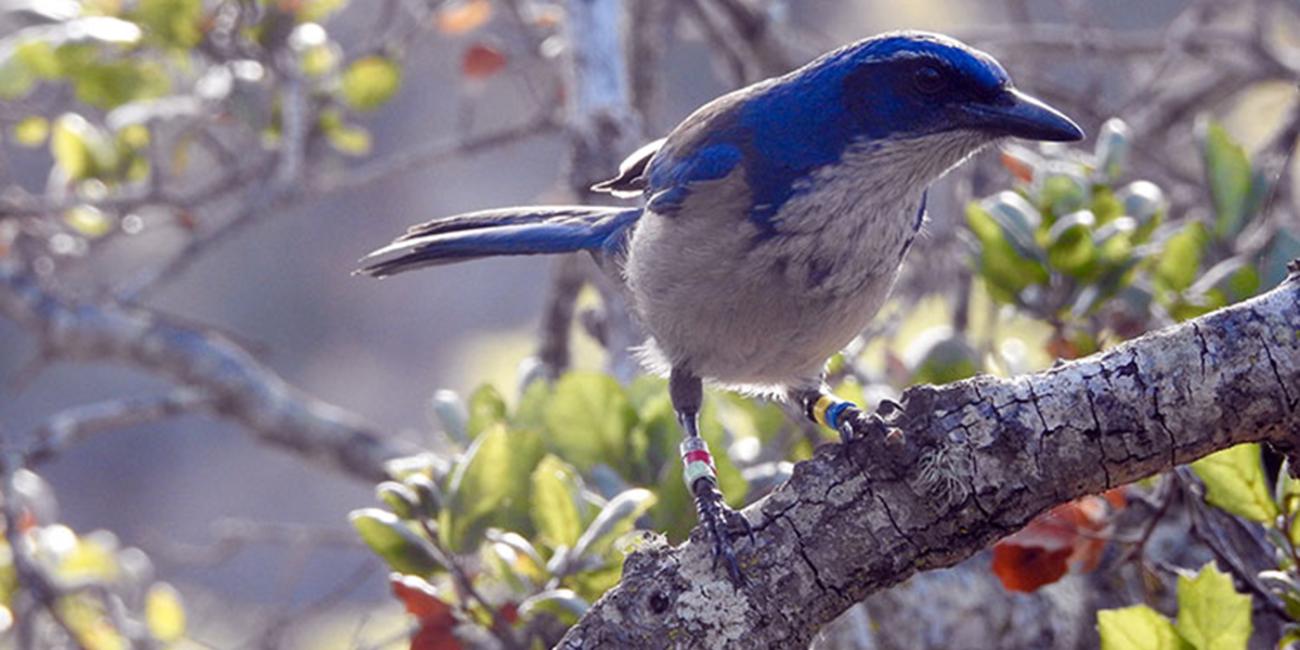Biography
James Mouton is an ecologist at the Smithsonian Conservation Biology Institute’s Migratory Bird Center. He seeks to understand how environmental variation (e.g., rainfall), species interactions (e.g., predation), and management actions influence the population dynamics of songbirds. His current research uses quantitative analyses and behavioral experiments to understand how predation by the island scrub-jay influences reproductive success and abundance in other songbirds to help inform management in Channel Islands National Park.
Mouton is broadly interested in understanding how animals respond to changing environmental conditions by altering their behavior and physiology, as well as how such responses scale up to affect population dynamics and the evolution of life history strategies. His previous work has ranged from studies examining how maternal hormones help shape the development of offspring when predation risk is high to studies about how behavioral responses to drought lead to changes in population growth in tropical bird communities.
Mouton received a bachelor's degree in biological sciences from the University of California, Davis in 2007, spent several motivating years serving as a U.S. Marine, and then returned to earn his doctorate in ecology and evolution at the University of Montana in 2019. He joined the Smithsonian Migratory Bird Center as a postdoctoral fellow in 2020.
When he is not in the field chasing birds or at his desk running analyses, Mouton can most likely be found hiking with his wife and baby daughter, spending quality time with his dogs, cooking, or daydreaming about ducks flying in the fall sky.
